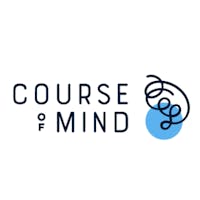On a Native American reservation in the southwest corner of New York state sits Salamanca City Central School District. Marcy Brown is the Director of Technology for the small district, tasked with the procurement of all educational software and hardware for a group of roughly 1,400 students and 300 faculty members.
In her 16 years with SCCSD, Brown has held four different positions, beginning as a self-described “tech savvy” earth science teacher. And yet, she’s quick to draw a line in the sand regarding her district’s reliance upon learning technology: “I don't believe a computer is where a kid learns. I believe solid curriculum, solid teaching and assessments are what we really need to be focusing on.”
As such, it should come as no surprise that, upon learning about Course of Mind: ISTE’s learning sciences initiative, she jumped at the chance to enroll a cohort of her colleagues. Here, she discusses her experience in the course and shares some key takeaways that she hopes will improve learning outcomes in her district.
EdSurge: Why did you enroll in the Launch into Learning Sciences course?
Brown: Being a science teacher, I'm always interested in how things function and how we learn. Learning is about absorbing knowledge. If we're not giving kids the ability to absorb knowledge, we're failing them.
When I came across Course of Mind, I did a little research on it, and I got very excited. So, I went and gathered up a few of the teachers who have a similar mindset—that we have to teach in a manner to promote student learning. Through this whole pandemic, I feel like we have just shoved computers in everyone’s faces and expected them to teach and learn in the same manner. And that's not effective; it's missing so much.
I wanted to figure out how we could purchase technology in a manner that is effective, not just for the kids, but cost-wise, too. We spend an ungodly amount of money on software, and I would like to do something else with it. So, part of this was for my personal growth; the other part was a desire to change how we do this for our district and for our kids. I really want our kids to excel, and just handing them a computer program isn't sufficient. I wanted to find a better way.
How would you describe your district’s approach to edtech procurement prior to enrolling in this course?
We've been one-to-one in our district for a number of years. Historically, if somebody wants software or hardware, if they are looking at stuff, we just file for grants. Nobody ever stopped and said, "Is this the best avenue?"
We've never had a good process for procuring software—or hardware, for that matter. And that's one of the big things that I'm working on. It should be very specialized. We shouldn’t all get the same thing; that doesn’t create equity. Currently, a senior in high school has the same device as a student in first grade, regardless of their programming. And that needs to be looked at, too. Depending on what they're using it for, shouldn't we be specializing? It's a driving force for me, to clean that up.
What are you taking away from the course?
I think the ability for educators to understand what kids are capable of is huge. And that, to me, is a whole education piece in itself—the idea of cognitive load.
This is a sidetrack, but I promise it relates. I taught earth science for 15 years. A few years ago, I took a class on bioinformatics because I liked the professor. It was all biology, but I thought, "I'll probably pick up something." And I had to work so hard just to understand it! Since then, whenever any adult talks to me about kids and learning, I say, "Take a course that you're interested in but know nothing about, and see how quickly you are overwhelmed. Then, put yourself in the shoes of a 10-year-old who can't read on grade level, has no concept of math and is expected to do word problems in real-world scenarios with vocabulary they don't understand.”
That is something that we all need to understand and absorb. We should be able to look at a kid and know when we've overdone it. And assessment absolutely falls into place with that. We should be assessing on a regular basis. Did they understand what we were talking about?
How might your experience with the course impact your district’s approach to edtech procurement in the future?
Part of this process is that I need to actually teach others. I need to work with the teachers in our district, help them understand certain aspects of the course, then relate those directly to the software we're using, so they can assess the software. I have an adult survey and a student survey, and both of those relate directly back to what I picked up in the course.
Next year, I have to cut 25 percent of my software budget. So, I've informed everybody, “If you are not having your kids use these programs, then we're cutting those.” Those are the first ones to go. And then, we're going to have to prove that we actually need other programs in order to continue. That’s kind of mean of me, but it gives me significant data. There are some programs where I log in and pull the analytics, and kids are using them every single day. I would spend $100,000 on a program if it's doing what it's supposed to do. So, the first part is, are we actually using it? The second part is, how are we using it?
The teachers can pull data from these programs to really and truly look at student engagement, student growth, the whole nine yards. We need to make sure that the teachers know how to use the software—and the data—to the best advantage of our kids. Once the teachers get used to having conversations about data, I think it'll be much easier to look at individual programs and see how they’re impacting learning.
Let’s talk about Course of Mind’s professional coaching. What do you hope to achieve with this support?
We met recently as a whole group, and they showed us a process for developing our ideas around purchasing software. I'll now begin to pull together all the stuff that I've already done—my surveys and other pieces—and when I meet with the coach individually, we'll talk about how those fit in. They'll make suggestions to streamline our process. I already have a fairly good idea of how I want to do it, but I need to fine-tune it. I really want somebody that's had eyes on it and has done it successfully to sit with me and make sure that I'm not just spinning my wheels.
And that's before I even roll it out to anybody in the district. It's going to be a continuing experience and evolution. I have a tech committee that I've been working with, and they're going to be part of the review and assessment of the software. Of course, this is not just limited to software. I want a sincere process in place for hardware as well. Who's using it? And how can we individualize it?
There's no reason in this day and age that I can't meet the needs of all my teachers and students. I've been excited about this whole process since day one. I just think it's an excellent way to get people involved in what we actually have to do.



